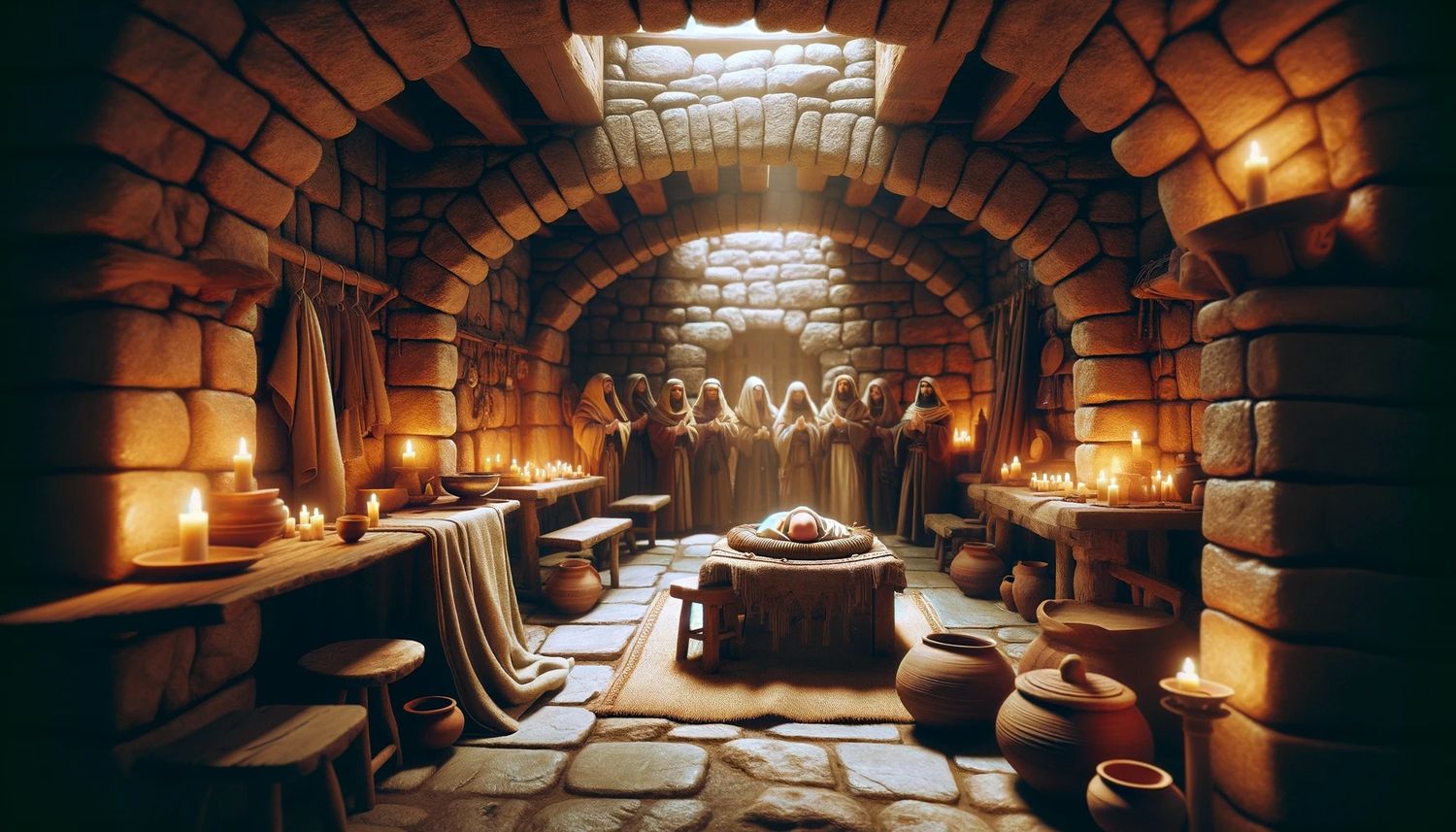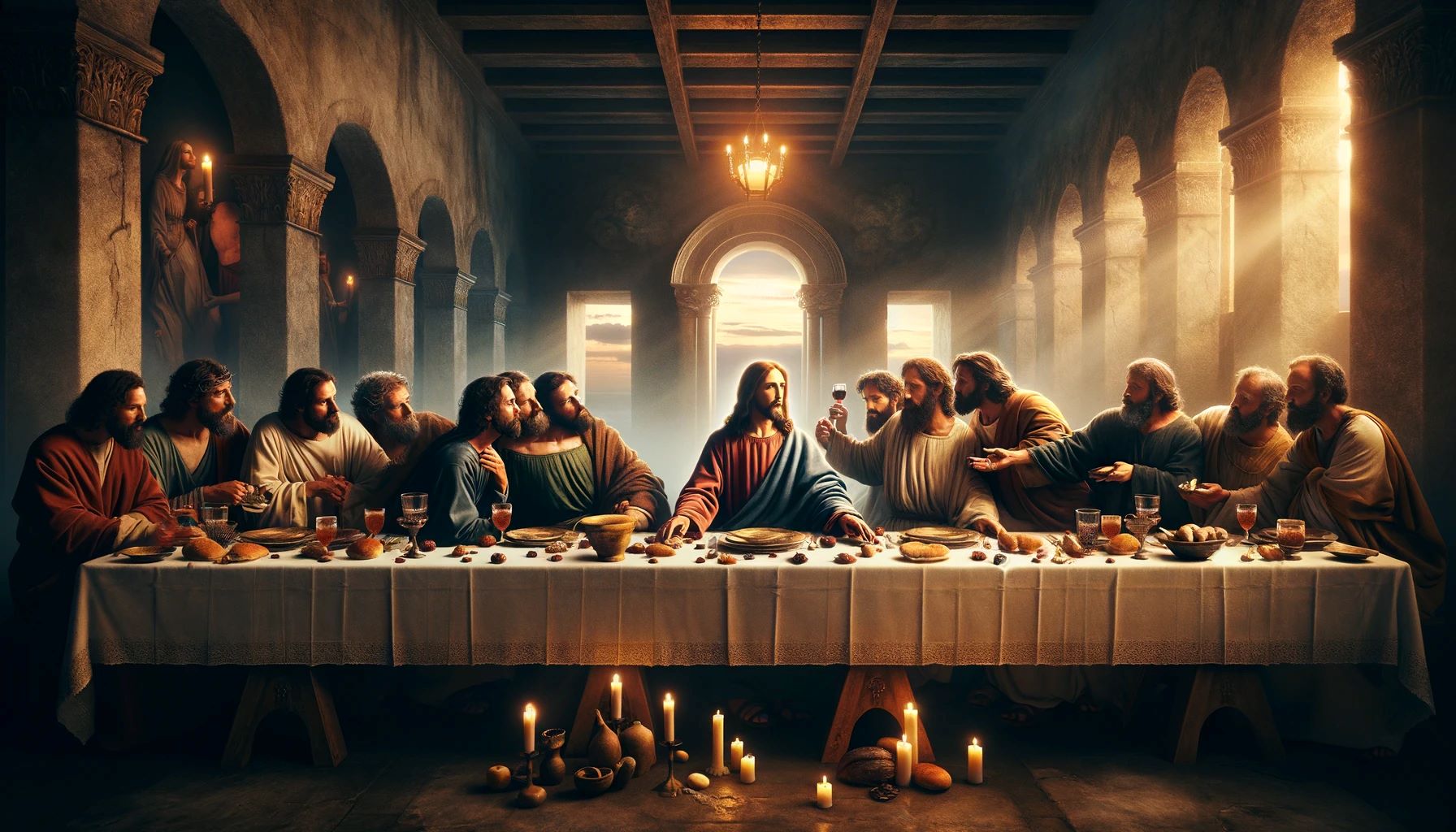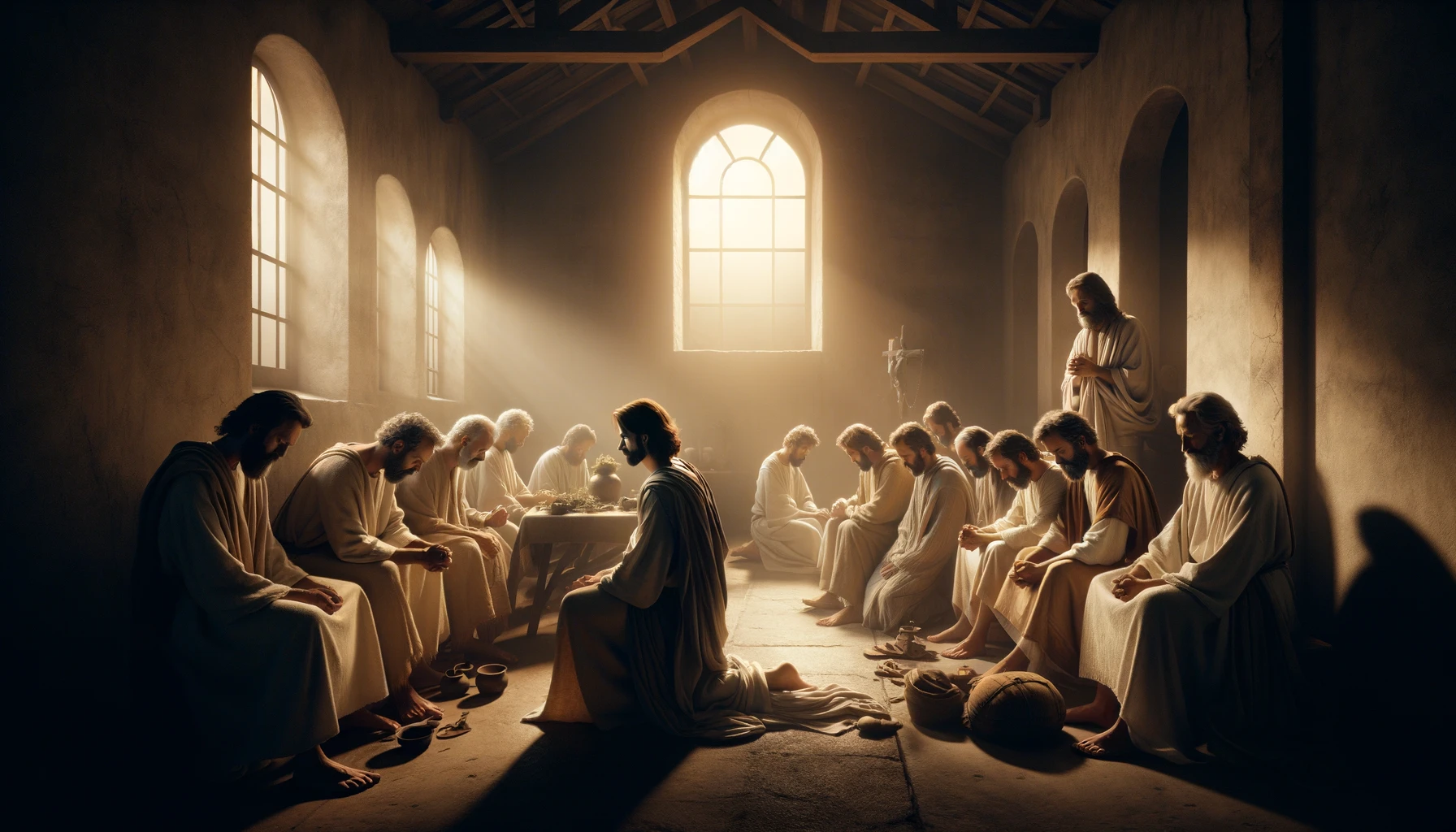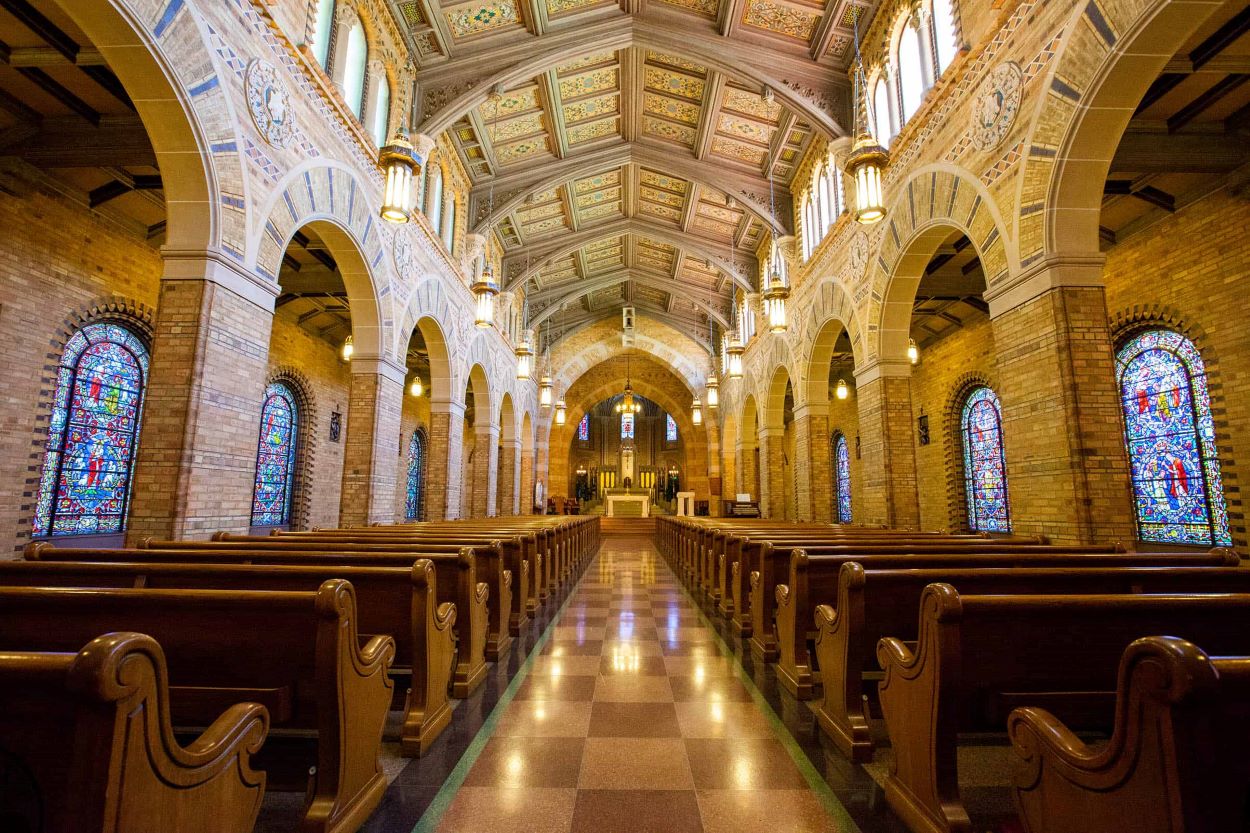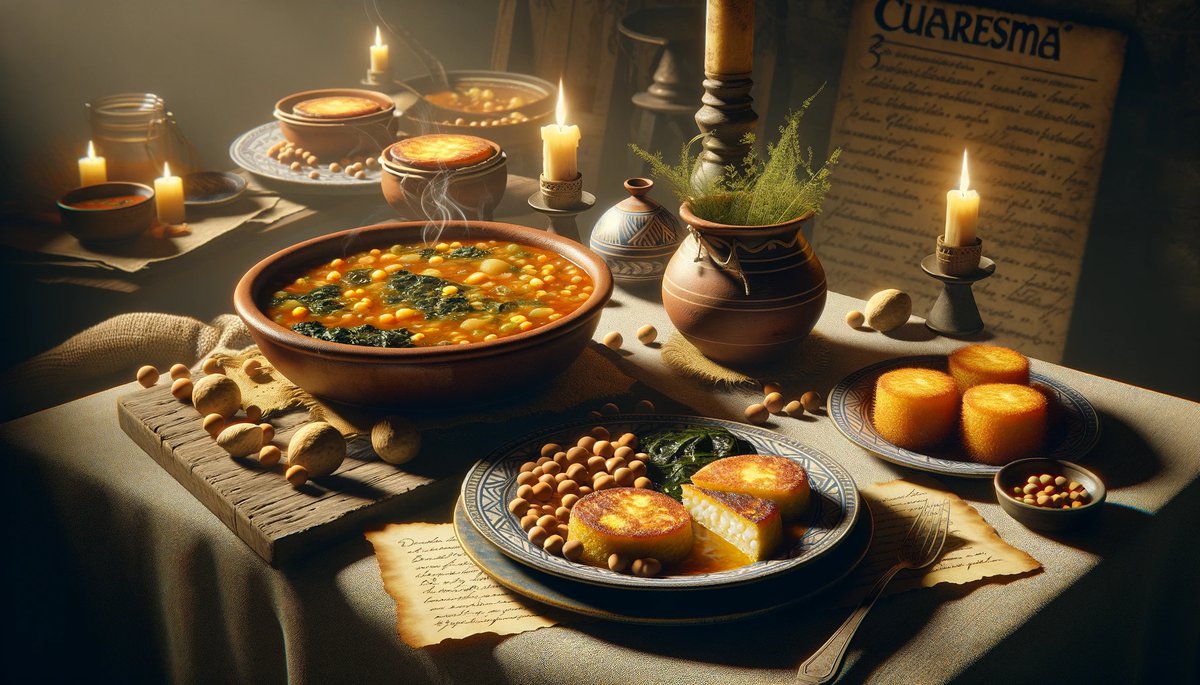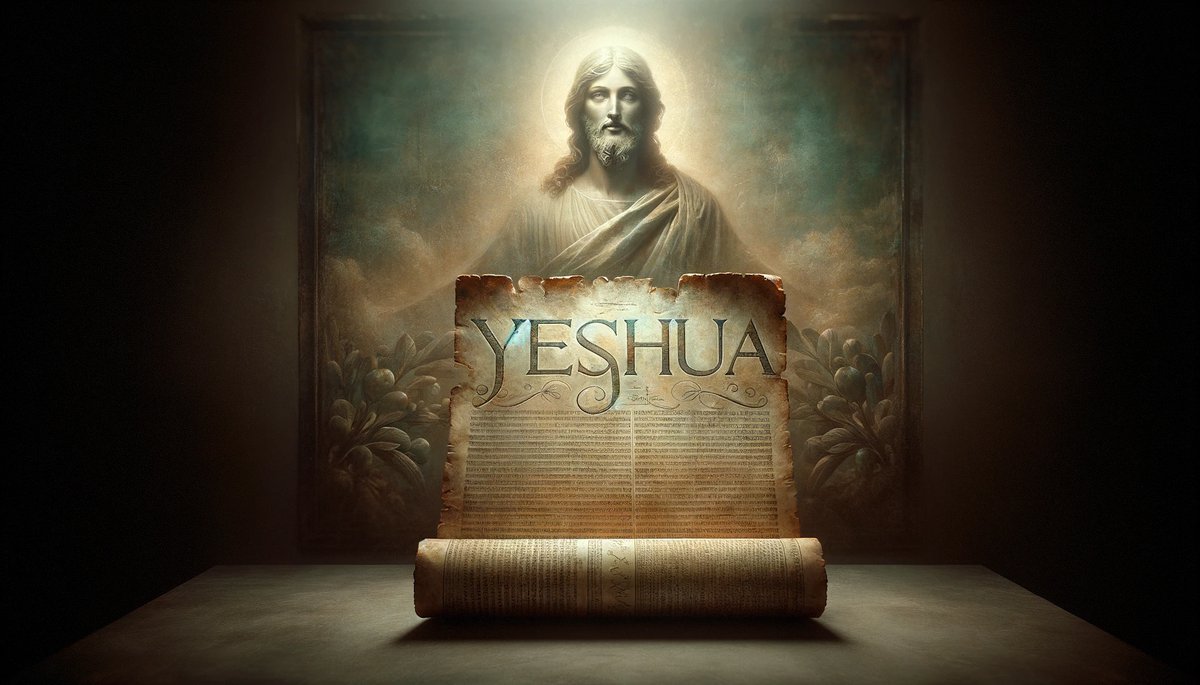Home>Christian Resources>Names of Demons And Their Classification In The Bible
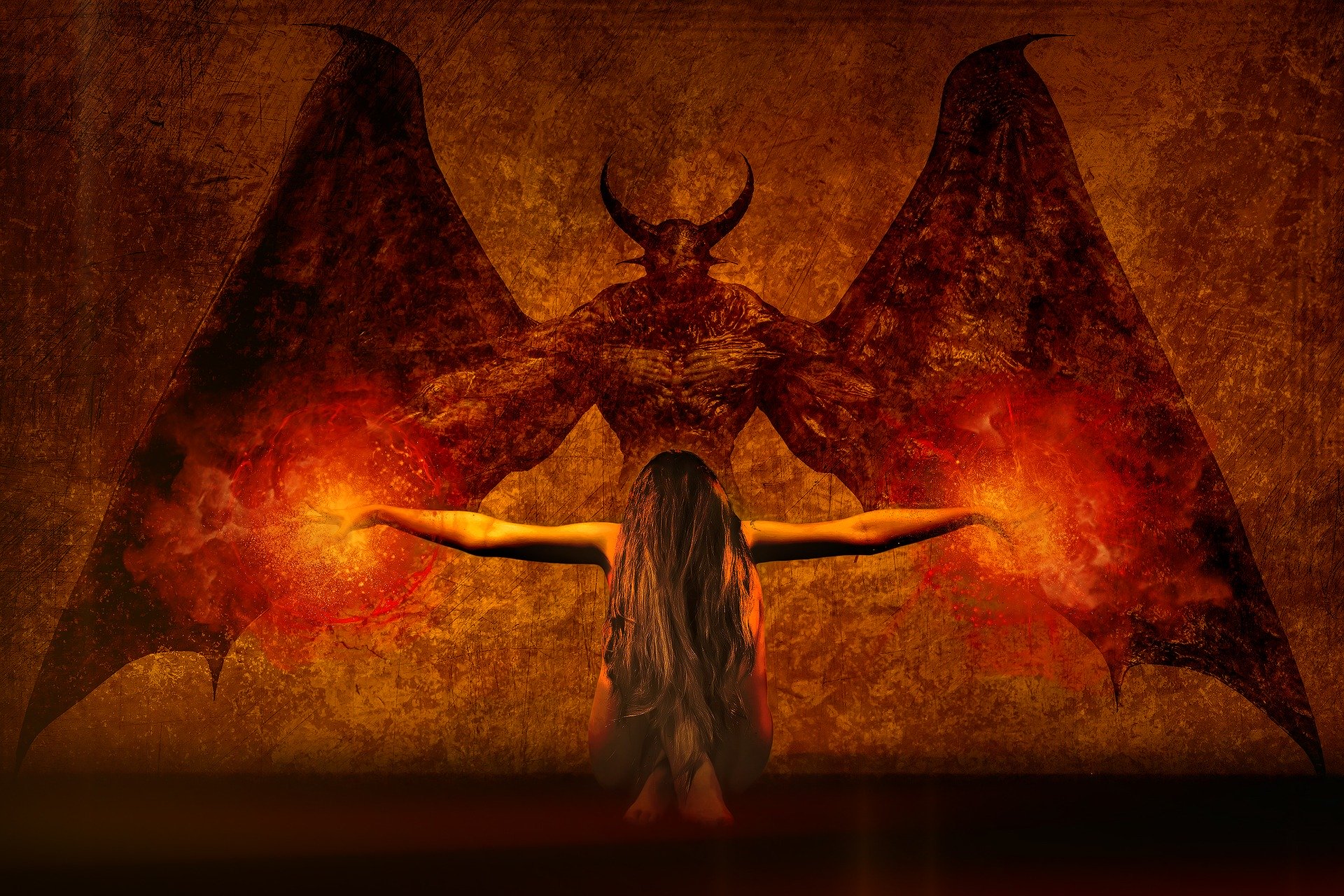
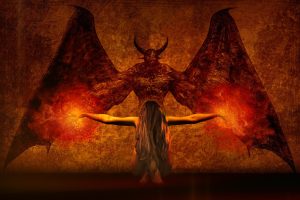
Christian Resources
Names of Demons And Their Classification In The Bible
Modified: January 9, 2024
Peter Smith, Editorial Director at Christian.net, combines deep insights into faith, politics, and culture to lead content creation that resonates widely. Awarded for his contributions to religious discourse, he previously headed a major organization for religious communicators, enhancing dialogue on faith's societal impacts.
These names of demons, along with their practices and characteristics, serve as a warning for us to avoid and reject them at all costs.
(Many of the links in this article redirect to a specific reviewed product. Your purchase of these products through affiliate links helps to generate commission for Christian.net, at no extra cost. Learn more)
In 1 Peter 5:8, we are given an important warning; to stay sober because the enemy is waiting like a lion for someone to devour. As firm believers in Christ, we are taught about demons. Demons are fallen angels with a mission to promote sin, induce temptations, torment, or frighten us or to basically do anything that will keep us away from God (Revelation 12:7-9). Like their counterparts, the characteristic of a Demon is spiritual, immutable and immortal. Demons are not omniscient, and their power is limited to that of which God allows. Demons also do not pertain to just one person or one kind but have various purposes and knowledge in their area of “expertise”. Actually, there are different names of demons along with their classifications as stated in the Bible.
What Are Demons?
Demons are malevolent beings that are able to travel within the transcendent dominion. While there are different names of demons provided by different traditions including the Bible, one thing remains the same. Demons are not good beings; they never come with good intent. The most alarming characteristic they hold is how they are able to manipulate humans; and to do that, they often test a person’s faith in God.
Actually, demons have no direct power over us like God does. If they did, we would all have been attacked by now. But, since they do not have the power to directly control us, they manipulate us. Demons tend to torment people through possessing them or by provoking visions that could induce people to sin (Matthew 17:15-16). They try to tempt people into abandoning the faith, commit heresy, and turn towards idols (Ephesians 6:12).
The Characteristics of Demons
Before the different names of demons, its general characteristics should be introduced first. As stated earlier, demons are not one, there are many. Here are the dangerous characteristics demons possess that we, as Christians, should keep an eye for.
-
Demons Have Levels
In Ephesians 6:10-12, we are told to stay strong because we are not dealing with the flesh or tangible and visible beings like humans. Instead, we are against the “rulers, authorities, and powers” of the dark world. Satan has control over all demons and their goal is to be an army to defeat God. Hence we as children of God need to put on the Armor of God. Additionally, Ephesians tells us that we must be against the spiritual forces of evil in the heavenly realms. From this, we are able to understand that each demon has its function. These are also why demons have different names and not just one. “Demons” is the general term used to identify these evil forces.
-
Demons Can Demonize
Unlike how being demonized is presented in movies, “demonic possession” is shown differently multiple times in the New Testament. One example was while Jesus was in Gerasenes, there were two men possessed by the demon known as Legion (Matthew 8:28 – 34, Mark 5:1 – 20, Luke 8:26 -39). Here, it is shown that the demon feared Jesus who held power and authority given by God. Indeed, demons can “demonize” people by entering into us. If we permit them, demons can influence our thoughts, actions, and words. Indeed, this is terrifying to think about. But, the Bible also offers a solution – The demons cannot demonize someone under the influence of God’s love. It is the best weapon we have against this characteristic.
-
Taking a Demon Off a Person has Risks
In connection to being “demonized”, is it possible for a person to be free off demonization by cleansing? Yes. But, there are risks. Taking out a demon is like cleansing a severe infection in the skin. If it is not done properly with the correct method and standards for sanitation, the infection will worsen. In the same way, Matthew 12:45 tells us that without proper spiritual care, a demonized person can be more demonized. Cleaning up your life without filling it with God’s word allows Satan and his demons to refill that empty space, making your life seven times worse. Do not let yourself be a target for Satan.
-
Demons like to Confuse People.
While these demons have different characteristics, one thing remains consistent and that is, their great ability to confuse people. Again, demons are nowhere as powerful as our God. So, they resort to searching and aiming for our weaknesses and when they find our weaknesses, these demons take advantage of us. 1 John 4:4 reminds us of how we should always remember that the One within us is stronger than the one of the world. Whatever the demons offer, we should not be swayed as the enemy sees this as a loophole to take us away from the Light.
-
Demons Pretend they are Gods
Demons are not gods and they never will be. But, they have to ability to trick humans into thinking demons are equal to or are Gods. These actions and beliefs are seen in the lives of the pagans. These Pagans believe that they are offering their blood and sacrifices to God when really, they are being tricked into worshiping a fake god. This “fake god” is a product of demons. If people are distracted away from God’s Word, these demons can lurk and deceive us into worshipping them. This is why there is a great emphasis opposing paganism in the Bible (1 Corinthians 10:20-21).
-
The Demons and Its Multiple Methods
According to Christian demonology (the study of demons), the main mission of the demons is to make humans sin. See, the more we sin, the farther we are separated from God. Since it cannot attack something near the presence of the Lord, the demons want us to separate from God’s presence so they can attack with ease. Now, the demons don’t follow just a single pattern or method into enticing us. Demons can strike us through fear, flesh, deceit, greed, hate, temptations, and even with our self-image. There are countless ways demons can take us but, for our part, we only have one answer to all these and that’s our relationship with God. Demons cannot touch what only God can hold!
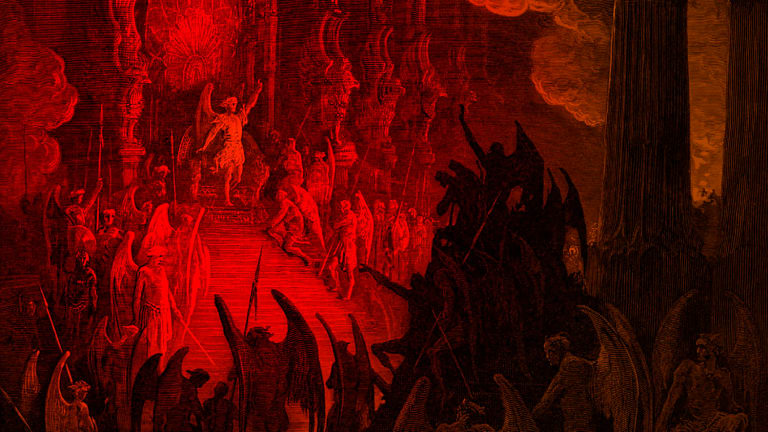
Names of Demons In the Bible
“Flesh”, “devil”, “world” and “enemy” are some of the terms used to refer to demons. However, the Bible has few names of demons that are addressed and some Jesus even spoke to. Demons are plural; they come in levels with different purposes. So, like everyone, they each have their own names; they are fallen angels after all. However, there are demons with specific and prevalent ill intentions. Here are some of the mentioned names of demons in the Bible along with their different purposes, history, and specializations.
Satan
Among the names of demons, Satan is the most known and feared demon. But, he was not born or destined to be a demon. In fact, Satan was being referred to as a recipient of many blessings from the Hands of God. He was anointed as a guardian cherub until he sinned, “You were blameless in your ways from the day you were created till wickedness was found in you. Through your widespread trade, you were filled with violence, and you sinned” (Ezekiel 28:12–15). Even in the New Testament, Jesus says that He saw Satan fall from heaven “like a flash of lightning” (Luke 10:18). These Bible verses all point to Satan as a fallen angel.
Also, the common misconception of Satan ruling Hell is flawed. He does not rule Hell. Instead, he is imprisoned in Hell just like any other sinner that rebels against God (Revelations 20). One-third of fallen angels who followed Satan and opposed God also faced the same destiny, separated from God and Heaven forever. But, where is Satan today? Going back to Matthew 4:9, Satan is the force of evil. In the New Testament, he attempted to tempt Jesus to abandon His fast. But of course, Jesus did not give in. Satan is in the evil around us today, in every sin we commit.
Satan’s Approach
In the same manner, Satan attacks us in the manner of temptation just as he did Jesus. We are given a reminder to stay disciplined and be alert because the devil is always prowling in hopes for someone to devour (1 Peter 5:8). Based on the nature that is revealed about Satan, he is the type to entice people into abandoning their beliefs and sin more.
Based on his approach towards Jesus when he offered Him bread and water in the middle of His fast, Satan is going to present us our desires (money, success, relationships) in exchange for our relationship with God. We have to stay strong; Let’s never choose anything that is against God’s Will because this is how the enemy attacks. In order to do this, we must practice patience and communicate with God more so that we can stay grounded in His Grace.
Molech
In this list of names of demons, there’s Molech. While it was not directly stated in the Bible that Molech is a demon, the act of worshipping under his name was an issue for Israel in the Old Testament (Leviticus 20:2). Since the act of worshipping false gods equate to demonic acts, Molech is a name that God has commanded us to not associate with. The history behind Molech’s existence is imprecise. Scholars believe that the act of worshipping Molech came to the region of Canaan with the Phoenicians.
Molech belongs to the terrifying list of names of demons we should erase from our lives. Int the Bible, we are told to not give any of our children as offerings to Molech (Leviticus 18:21). This is a reference to one of the documented practices of Molech worship where they sacrifice humans. Molech was also mentioned in 1 Kings 11:7.
The act of worshipping Molech was at peak during Solomon’s reign. The existence of worshipping Molech teaches us a great lesson of being careful with what and who we worship. At the time, people would go to the extent of sacrificing their children over to a demon they thought was God. As believers, we should be extra careful around those who claim to be God. The best way to avoid this is to dwell inside the Lord’s Word because knowledge is power. The more we know God, the more we know who and what to believe in.
Legion
With many names of demons, we can see that they are unlike God for there is more than one demon; we have only one God. This is well-depicted through Legion, a demon Jesus spoke to (Mark 5:1 – 20). When Jesus arrived at the country of Gerasenes, He met a possessed man outside a cemetery. This man was unlike any other, no one was strong enough to subdue him. They tried binding him with chains and shackles but, none of these worked as well. So, Jesus asked this man his name. He replied with “My name is Legion, for we are many”(Mark 5:9, Luke 8:30 – 31).
As stated earlier, demonization can include more than one demon. In this case, a Roman legion consists of about three thousand to six thousand soldiers. This made sense as to how the unclean spirit or demon was immensely powerful in terms of physical power. Although the possibility of having thousands of demons is terrifying, here’s something we should always remember – It doesn’t matter if there are thousands if not, millions of demons. If we have God, then One Man is more than enough.
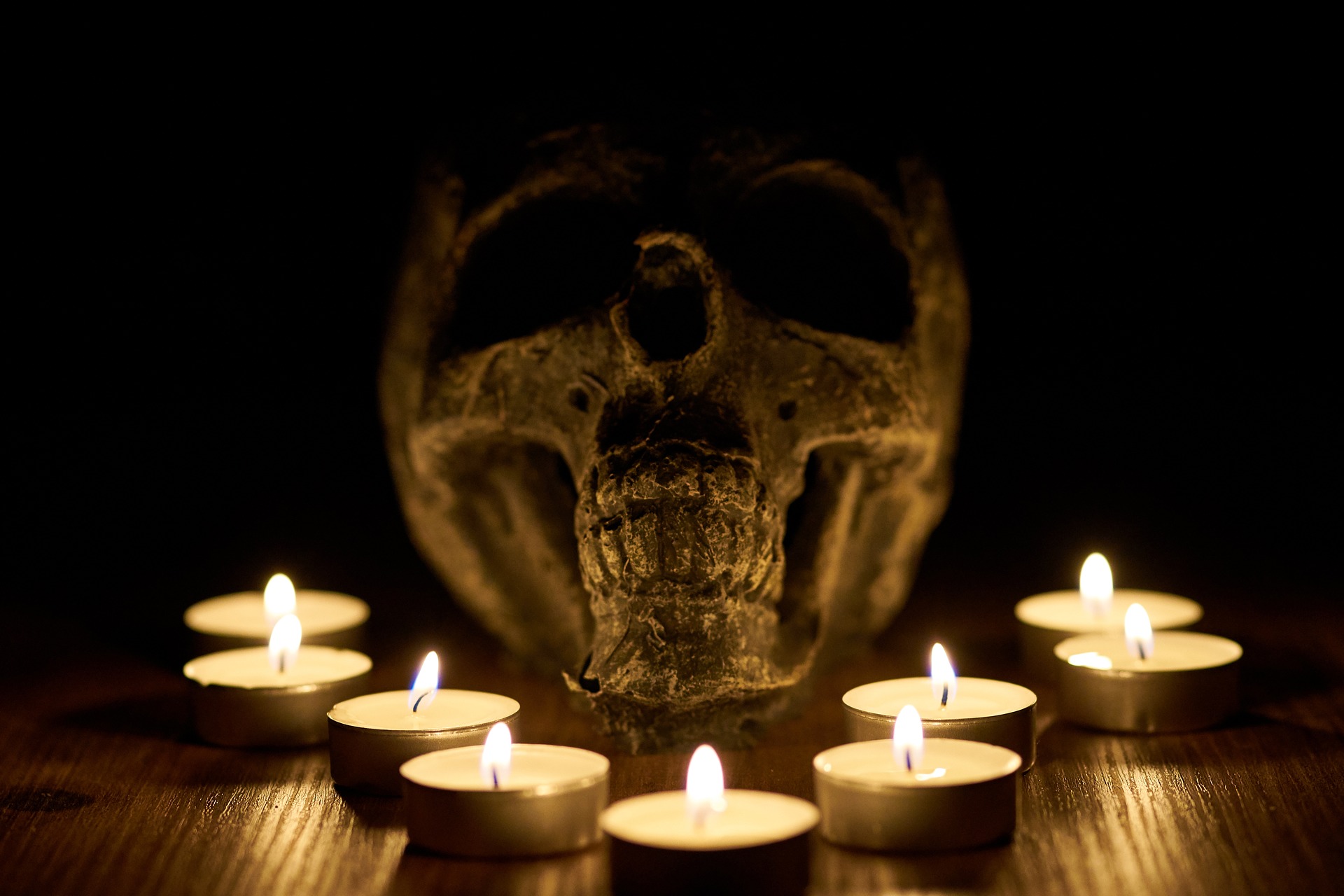
Abaddon/Apollyon
Among the many names of demons available in different sources, Abaddon is definitely a name we want to avoid. Abaddon is mentioned in Revelation 9:11. His Hebrew name is Abaddon and His Greek name is Apollyon. Either way, Abaddon is included in the “Seven Trumpets’ prophecy” as described by Apostle John.
Under this prophecy, when the fifth trumpet is blown, demons will be released with the goal of bringing torture and terror towards those without God’s seal. Now, these demonic locusts will have a leader and this leader is Abaddon. This demon’s mission is simple; torturing, and causing suffering upon those who have declined God as its only purpose. Additionally, Abaddon is also one of Satan’s underlings.
It cannot be denied that the thought of demons like these are scary. But, we have the power to turn against a future of eternal suffering. This is why we should choose, act, and speak carefully. Today, at this very moment, we are given the opportunity to choose and pursue Jesus Christ so that we are saved. Only through the Name of God, we are saved, exempted, and protected from these demons.
Read more: What Is Another Name For Baptism
Other Demonic Traditions In the Bible
There are moments in the Bible that show how humans are prone to be enticed into the different names of demons and the false promises being offered to them. Demonic traditions have been highly conducted throughout history. Due to humanity’s lack of spiritual strength and knowledge of God’s Words, these practices spread to many countries. These people thought that they were worshipping God when in reality, they were praising demons. Here are the demonic traditions praising the names of demons in the Bible.
Divination
Divination is an eerie demonic tradition found Deuteronomy 18:10-12. This practice included killing chicken or any similar animal in size. These people willingly did this act to observe its liver to somewhat “predict” the future or any queries about their paths. Divination is a demonic tradition because of its pagan intentions. If we are calling for another name that is not the Lord’s, it means that we are seeking the opposite- the names of demons. There is no way to identify what God has for us. Instead of committing such acts, we should return to the Scriptures (Psalm 119:9).
Necromancy
From the word “necro” or “corpse”, this type of practice involved the bodies of the dead. This action aims to communicate with the dead. Deuteronomy 18:11-12 clearly warns us that anything or anyone who attempts to charm or communicate with the dead is considered an abomination in the eyes of the Lord. See, the dead cannot communicate with the living and this has always been the rule of God. Therefore, necromancy opposes God by doing something that is against what is natural.
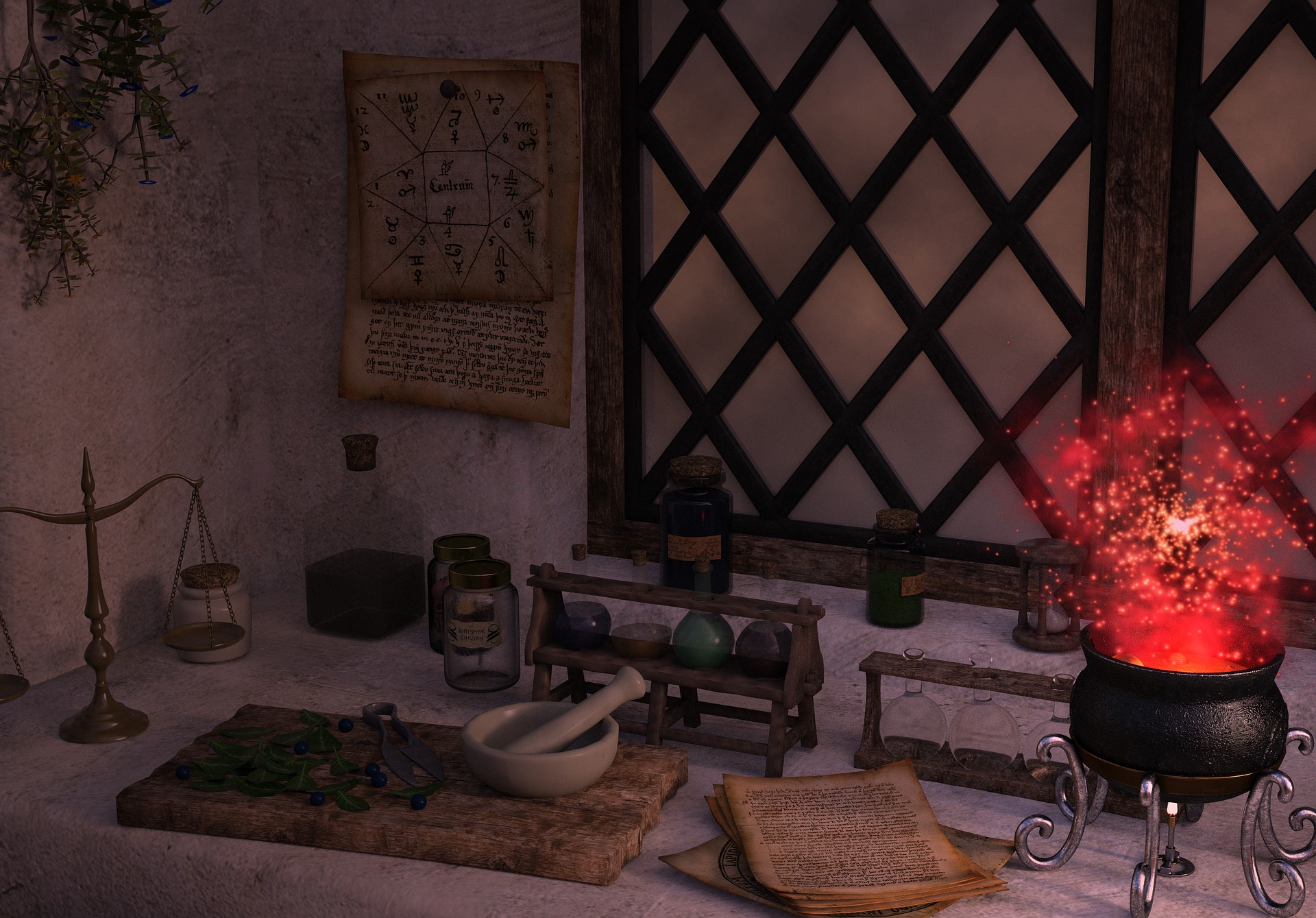
Witchcraft
Unfortunately, witchcraft is still present today. It is not what we see on television and movies; and there’s no good or bad witches and wizards. Witchcraft is a combination of magic and sorcery. This act answers to the names of demons that strongly opposes the Way of the Lord (Deuteronomy 18:10-13). Actually, witchcraft was the first act Saul banned when he first became the king of Israel (1 Samuel 28:9). Again, we as Christians should not associate ourselves with power that does not come from the Lord. Only God should be the One we acknowledge as our Source, never accept anything that mimics God. If something copies God, this probably opposes God.
Read more: What Is The Baptismal Name?
Magic
While “magic” sounds like a normal word used in movies and songs, attempting on using it is a whole different story we want to avoid. Magic actually has a strong demonic background, it dwells on the names of demons. Even if it is “white magic” or “black magic”, any attempt on recreating any form of power similar to God is an abomination. In Exodus 7:11–12, this is made clear. Any power worshipped or duplicated that isn’t from God is a power that comes from evil.
See, when a person is able to accomplish something great that he or she believes is more than her abilities, this is called being blessed by God. Absolutely, there is no grain of evil in being blessed by the Lord. However, if any improvement or “magic” is done that God is not the source of. Then, this so-called source is seen in demonic power. Calling out to the names of demons is nowhere as strong and powerful as the Lord. But, if humans aren’t strong, they can easily be manipulated and deceived.
Astrology
Like witchcraft, astrology is one of the oldest practices out there. Yet, it still thrives today. From what is stated in the names of demons, astrology is a practice that revolves around the demon Molech. Especially in Canaan, astrological practices were centered around worshipping the bull. They would go as far as sacrificing children for the demon they worshipped. Exodus 34:14 tells us that God is a jealous God. Therefore, affiliating ourselves with other forces is not just demonic but, also offensive to God. We only need to rest still, God is more than what we need and He’ll never run out!
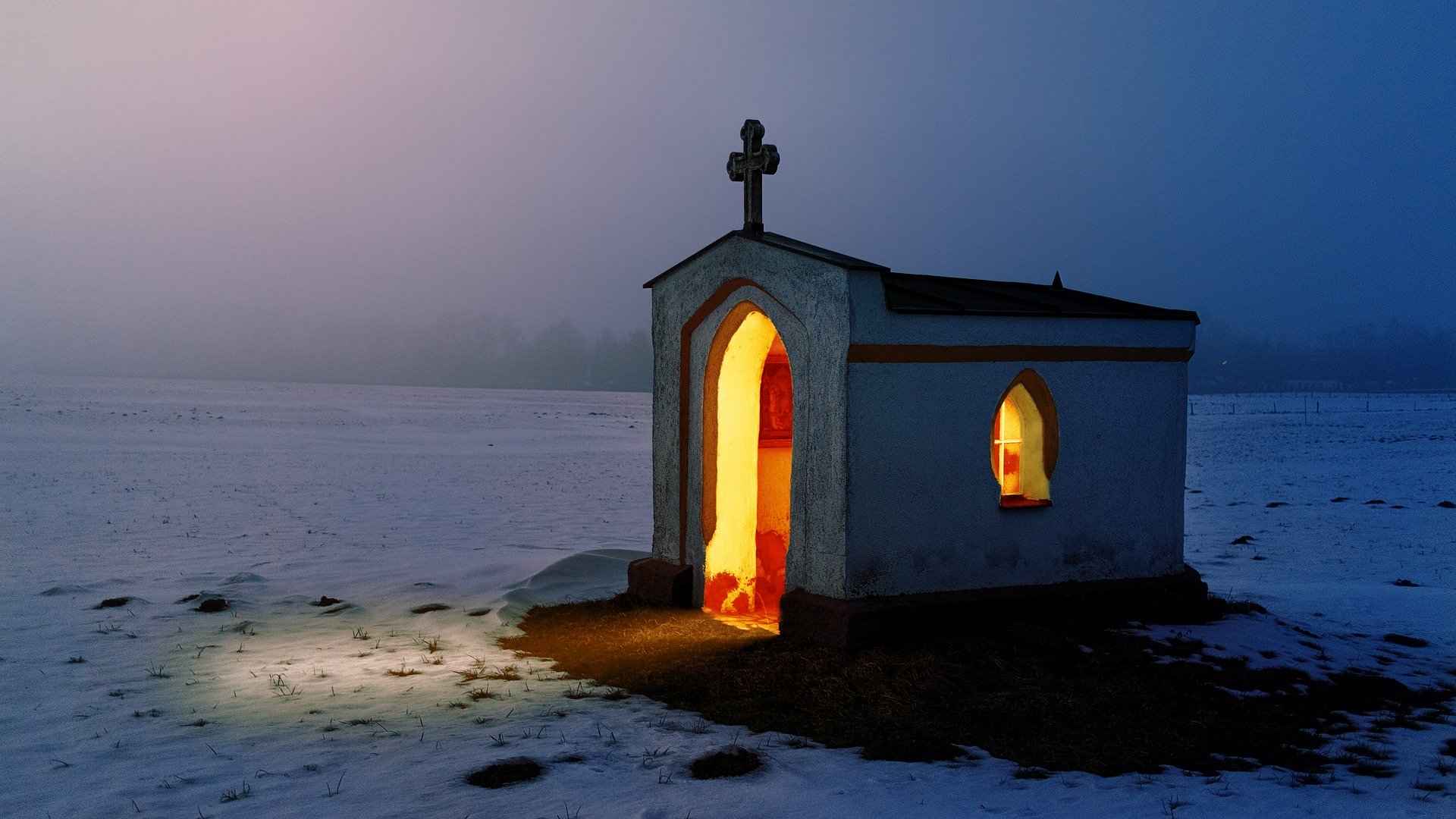
In this article, aside from the names of demons, the practices revolving demonic traditions and characteristics were also discussed. The reason behind this is because sometimes, humans can be tricked into the demons’ promises. A person does not have to know the names of demons that are attacking them. It’s like a disease, we don’t have to be doctors or medical experts to experience complicated disease. If our bodies are weak then, it is expected that we’ll lose our vitality and become sick. Our spirits work exactly like this. This is why we use the Armor of God to strengthen our spirits and fill our minds with the Truth which comes only from the Lord.
